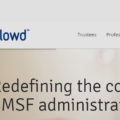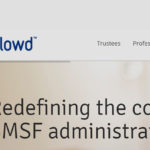If you have SMSFs as clients, you probably have done some event-based reporting over the last few weeks, where you reported the transfer balances as of 30 June 2018. We found it easier than expected but the next hurdle is the 28 October.
Event-Based Reporting
So the next reporting deadline will be the 28 October where we start reporting events for the first time. But before we look into that in more detail in another episode, we wanted to clarify three questions. The first and most important one is what the difference is between event-based reporting and TBAR. The other two are more for lovers of detail (aka nerds) like us.
To listen while you drive, walk or work, just access the episode through a podcast app on your mobile phone.
Event-Based or TBAR
Can you remember how at the very start – 14, 15 months ago – there was no TBAR? And all we ever spoke about was event-based reporting?
So now we have TBAR and we have event-based reporting. Have we just replaced one word for the other to name the same thing? So is it actually the same?
Or are event-based reporting and TBAR two different things and if yes, what is the difference?
We just reported the balances for our clients’ transfer balance accounts as of 30 June 2018. Going forward we will need to report events, but we won’t have to report any balances again.
So it is tempting to think that what we just did was TBAR (transfer balance account reporting) and what we will do from now on is event-based reporting. On that basis TBAR would have been a one off. But it isn’t.
And this where the argument is flawed. The purpose of a TBAR is for the ATO to determine the TBA for a member in retirement phase at any given time. And that purpose hasn’t changed. Even when we only report events from now on, we still do that so the ATO can rollforward a member’s TBA. And that’s also why we only report events that affect the TBA.
So even though we only report events from now on, all this is still about the transfer balance account. That’s the long answer.
The short answer is that we do event-based reporting through the TBAR. The TBAR is the form or the online template or the data file we send to the ATO to report events.
Event or Events
Another question – and it is a pure academic question – is whether it is ‘events-based reporting’ or ‘event-based reporting’. With or without an s?
When you google both terms, it is roughly half-half. You get 220m hits for events-based with an s and 200m for event-based without an s.
But if you go with what the ATO is using now, then it is event-based reporting without an s. If you look back to about a year ago, the ATO was still using both versions – so with and without an s. But they have obviously now settled on ‘event-based’ without an s. And so that’s what the industry will probably settle on eventually as well.
Event-based or Event based
And the third question only affects the written word. And that is whether ‘event-based’ is with or without a hyphen?
The ATO consistently uses ‘event-based reporting’ now with a hyphen. The industry tends to use both versions – ‘event-based’ and ‘event based’.
MORE
Class SMSF Benchmark Report June 2018
Disclaimer: Tax Talks does not provide financial or tax advice. This applies to these show notes as well as the actual podcast interview. All information on Tax Talks is provided for entertainment purposes only and might no longer be up to date or correct. You should seek professional accredited tax and financial advice when considering whether the information is suitable to your or your client’s circumstances.
Last Updated on 05 May 2020
Tax Talks spoke to Kevin Bungard - CEO at Class - for more details.






